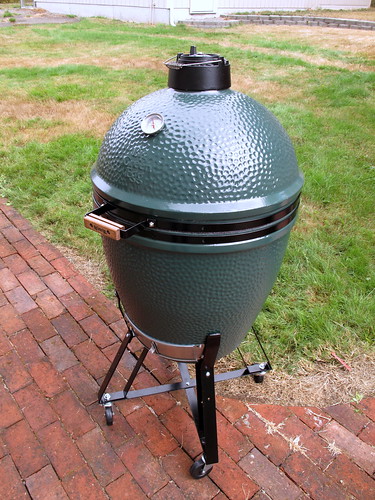 Image via Wikipedia
Image via WikipediaWhether trying to cut costs or carbon emissions, more people are attempting to reduce their energy consumption every day. Most energy saving measures require some up front cost to initiate, and some can be extremely expensive. Although any good measure will pay for itself in energy savings over time, it can be difficult to come up with the capital to get the ball rolling. I love finding and sharing the things that are relatively cheap to implement, and my favorite energy saving measure are the ones that, like all the best things in life, are free.
With that in mind, here is one thing that anyone can do to reduce their energy consumption, which should save money without costing a dime: dress for the season. You have probably heard this one before, but it is worth repeating.
For most of us, the single biggest consumer of energy in our lives is the space we live in. This includes the electricity used to keep our food cold, the energy used to heat it up again, used to heat our water, run our computers and entertainment systems, light our dark rooms and dry our wet clothes. All of the above combined, however, is less (for most homes) than the energy used to heat our spaces in the winter and cool them in the summer.
Of course, to reduce your heating and cooling load, most people will tell you to replace your old windows, which is phenomenally expensive. But there is something much simpler, immediately effective, and free that you can do, which is heat and cool your spaces just a little less. You may think that a few degrees on the thermostat won't make much of a difference, but consider this: heat flows from a warmer space to a cooler space, which is obvious, but it flows faster the greater the difference in temperature between the two spaces. Each extra degree of difference requires more energy than the last, so the bigger the difference the more energy it takes to maintain a conditioned space.
In other words, the colder it is outside the more energy you are saving by turning your thermostat down just a little. I don't want to ask you to sacrifice comfort, however, so that is where dressing for the season comes in. Bundle up, grab a blanket, and turn the thermostat down as low as you can safely and comfortably manage. Wear layers, use slippers or woolly socks, and find comfortable sweats and long underwear. You will probably still need heat if you live north of about 35 degrees latitude or in higher elevations, but every degree helps.
Similarly, the hotter it is outside, the more energy it takes to cool your house down. So in the summer, instead of bundling up take it off. Light linen clothes, fewer layers, or a swim suit with a light shirt or wrap may make it comfortable to open the windows instead of cranking the AC. When your kids complain that they don’t want to see you in your bathing suit all the time, calmly explain to them that you are saving the planet by embarrassing them in front of their friends. Also, leaving windows open at night (if it does not sacrifice security) and closed during the hottest part of the day can reduce your cooling load. Finally, during the hottest part of the day try getting out of the house completely. Find a shady place, preferably near a body of water, and try to enjoy the summer sun.
It may sound like sacrifice on the face of it, but you might be surprised to find that when the ambient air is a little colder, standing next to the stove makes you feel even warmer than if the thermostat were set at 70. Similarly, a breeze blowing the curtains can be more refreshing than a sealed room conditioned to ideal temperatures. This is because the contrast is very pleasing to our senses. When the room is stable at the ideal temperature, that simply becomes the new baseline.
There are of course a number of things you can do to improve your home’s ability to retain heat, but pretty much every single one will cost you something. Many utility companies offer home owners free energy audits which recommend specific measures, so you can evaluate what you can afford, what is worth it, and what you can possibly save up for. And while you are saving up for those measures, you can pocket a buck or two by dressing inside more like you would outside.





